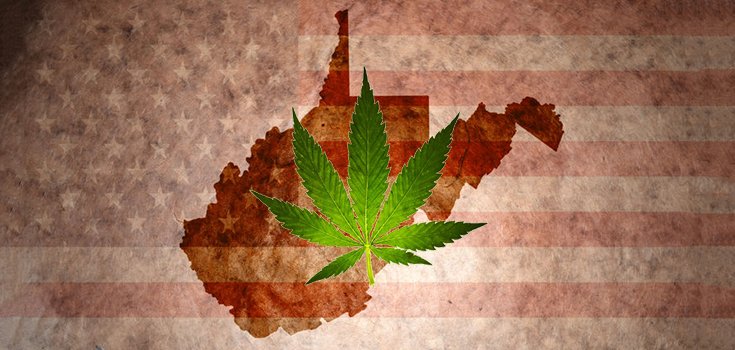Legal Medical Marijuana is Coming to West Virginia

Medical marijuana is coming to West Virginia, and there may be no state that needs it more as the state has been ravaged by the opioid epidemic. In 2015, West Virginia had the highest opioid overdose rate of any state in the U.S., CDC data shows.
The West Virginia legislature approved a medical marijuana bill on 7 April 2017, and it immediately headed to Gov. Jim Justice’s desk to await his signature. If he signs it, which he is expected to do, the state will become the 29th state in the union to legalize cannabis for medical purposes. [1]
West Virginia has a massive opioid problem. In early 2016, West Virginia Attorney General Patrick Morrisey filed a lawsuit against San Francisco-based McKesson Corporation, alleging that the company had dumped tens of millions of prescription painkillers into the state. Morrisey accused McKesson of failing to detect, report, and halt the flood of suspicious prescription drugs into West Virginia.
In March, attorneys in West Virginia filed lawsuits in federal court on behalf of two counties targeting some of the country’s largest drug distribution companies, including McKesson Corp., Cardinal Health, and AmeriSource Bergen. Walgreens, CVS, and other pharmacies also were named. The suits accuse the companies of creating a hazard to public health and safety by shipping prodigious amounts of painkillers into the state, violating West Virginia law. [2]
What all this means is that these distributors and pharmacy chains allegedly capitalized on West Virginia’s emerging opioid problem and turned that problem into the perfect storm, raining down addiction and overdoses on its residents.
According to a February 13 analysis by the West Virginia Health Statistics Center, at least 818 people in the state died of drug overdoses in 2016. That’s four times as many than died in 2001, and a nearly 13% increase over the 725 overdose deaths in 2015. [3]

In contrast … a September 2016 study showed that in states where medical marijuana is legal, opioid use actually decreases. And a 2014 study in JAMA showed that states with medical marijuana laws had nearly 25% fewer opioid-related deaths than states without such laws.
However, compared with other states, West Virginia’s medical cannabis law is uniquely restrictive. Marijuana is permitted in vapor, pill, oil, gel, cream, ointment, tincture, and other liquid forms. But smoking is prohibited, and dispensaries may not sell edibles. [4]
How effective is marijuana in treating opioid addiction? The answer: No one is certain. There isn’t enough research on the books to reach a conclusion. That’s why you don’t see it on any lists of qualifying conditions, including West Virginia’s.
A shame.
The good news is that people with the following qualifying conditions will benefit from West Virginia’s medical marijuana law:
“cancer; HIV or AIDS; amyotrophic lateral sclerosis; Parkinson’s disease; multiple sclerosis; damage to the nervous tissue of the spinal cord with objective neurological indication of intractable spasticity; epilepsy; neuropathies; Huntington’s disease; Crohn’s disease; post-traumatic stress disorder; intractable seizures; sickle cell anemia; severe chronic pain of neuropathic origin in which traditional treatments didn’t work or aren’t recommended; and terminal illness, meaning having a prognosis of one year or less to live.” [4]
Assuming the bill passes, the state’s Bureau of Public Health won’t begin issuing medical marijuana ID cards until 1 July 2019. The legislature could change the date if the bureau decides it’s ready sooner.
Sources:
[1] Vox
[3] Associated Press
